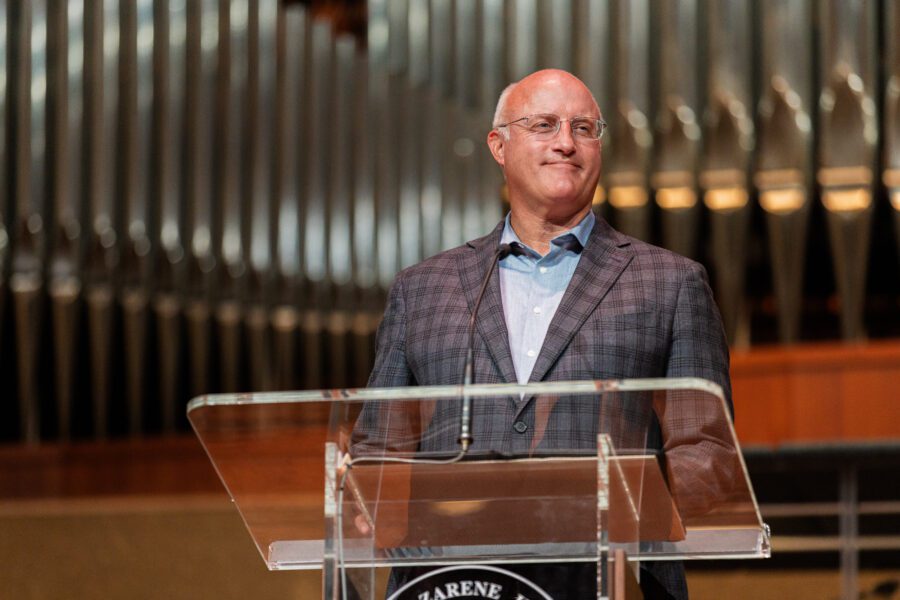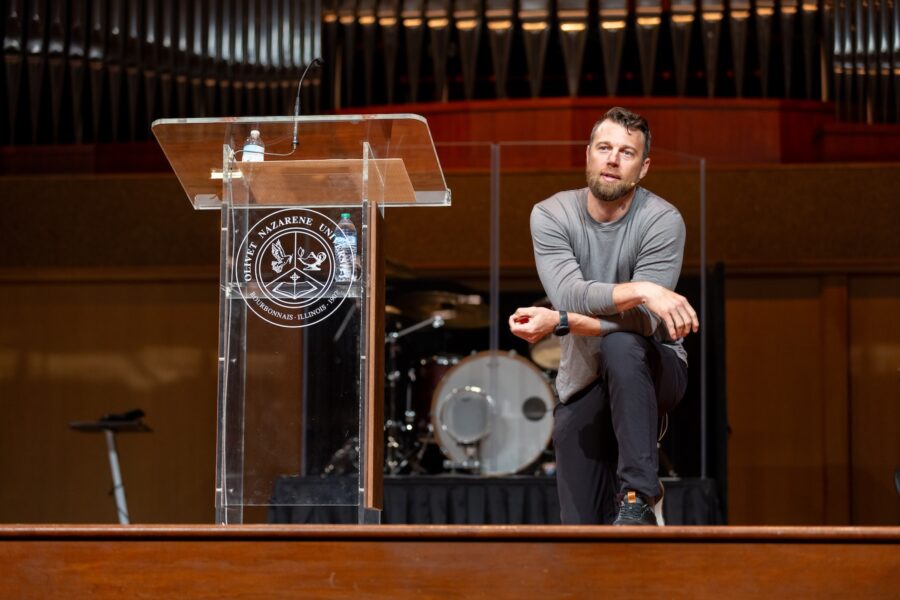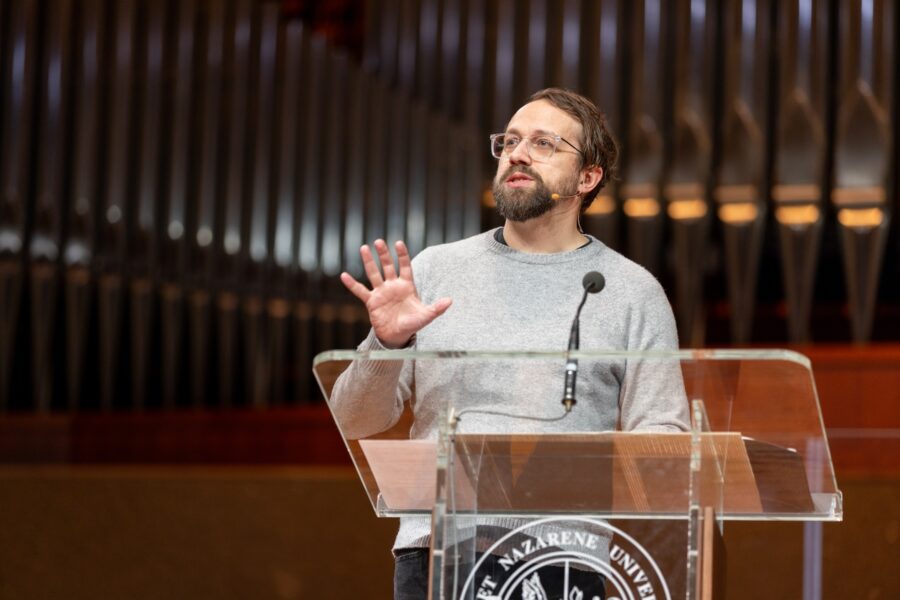
Quoting Psalm 1, President Gregg Chenoweth opened the first chapel of the year at Olivet Nazarene University, held in Centennial Chapel. His message set a reflective tone for the year ahead, inviting students, faculty, and staff to explore the true meaning of being “blessed” and to find happiness even in the face of hardship.
Dr. Gregg Chenoweth began his message by welcoming the Olivet community back to a new academic year, highlighting the importance of spiritual growth amid life’s inevitable challenges. “If I had to give a theme for what I’m about to share, it would be ‘happy in hardship,’” Chenoweth stated. He encouraged those in attendance to see hardships not as obstacles but as opportunities to grow closer to God, emphasizing that the presence of God can bring joy even in difficult times. “A sufferer who seeks God becomes almost irresistible to Him,” he said, noting that God’s nature is to “rush toward the person in need who seeks him.”
Central to his message was the idea that the concept of being “blessed” is often misunderstood. Chenoweth pointed out that in today’s culture, blessings are frequently equated with material wealth or comfort. However, he argued that true happiness is found not in accumulating wealth but in seeking God, especially during times of hardship. “It’s so important for you now, at this phase of your life at Olivet, to get clear on this,” he explained. “Because you might not think of it this way, probably most of you are millionaires in the making. But you would entirely miss the point of Olivet’s project with you if you served God for material blessings.”
Drawing from his personal experiences, Dr. Chenoweth shared how hardships shaped his spiritual journey. He spoke candidly about a series of painful events early in his life, including the tragic death of his father, a miscarriage, and losing his job. “Just before my 23rd birthday, my dad was killed in an airplane crash. This was the first really serious tragedy of my life,” he recounted. He described how these events led him to question his faith, causing him to drift toward agnosticism. “Despite all the advantages I had in my spiritual formation, I became agnostic,” he admitted, explaining how he had lost faith in a God who seemed distant in his suffering.
However, through this period of doubt and questioning, Chenoweth discovered a renewed sense of faith and purpose. He shared how writing his father’s eulogy became a pivotal moment for him to reconnect with God. “Writing doesn’t express your thought; writing completes your thought,” he said, encouraging students to journal through their own hardships. “When you edit what you write, you edit your thinking.” Through this process, Chenoweth realized that God was present in his pain, not distant or indifferent.
Reflecting on this journey, Chenoweth highlighted how God uses hardships to draw closer to those who seek Him. He quoted Psalm 34 to remind the audience that “The Lord is close to the brokenhearted and helps those who are crushed in spirit.” He challenged students to embrace this truth and to see their struggles as moments when God is most near and active. “In the face of difficulty, by the presence of God, we’re made happy… we have confidence that He’s got me. Trust rises, hope expands, and it leaves us, unpredictably, supernaturally, happy in God despite our hardship.”
To watch the full chapel service, click here.





